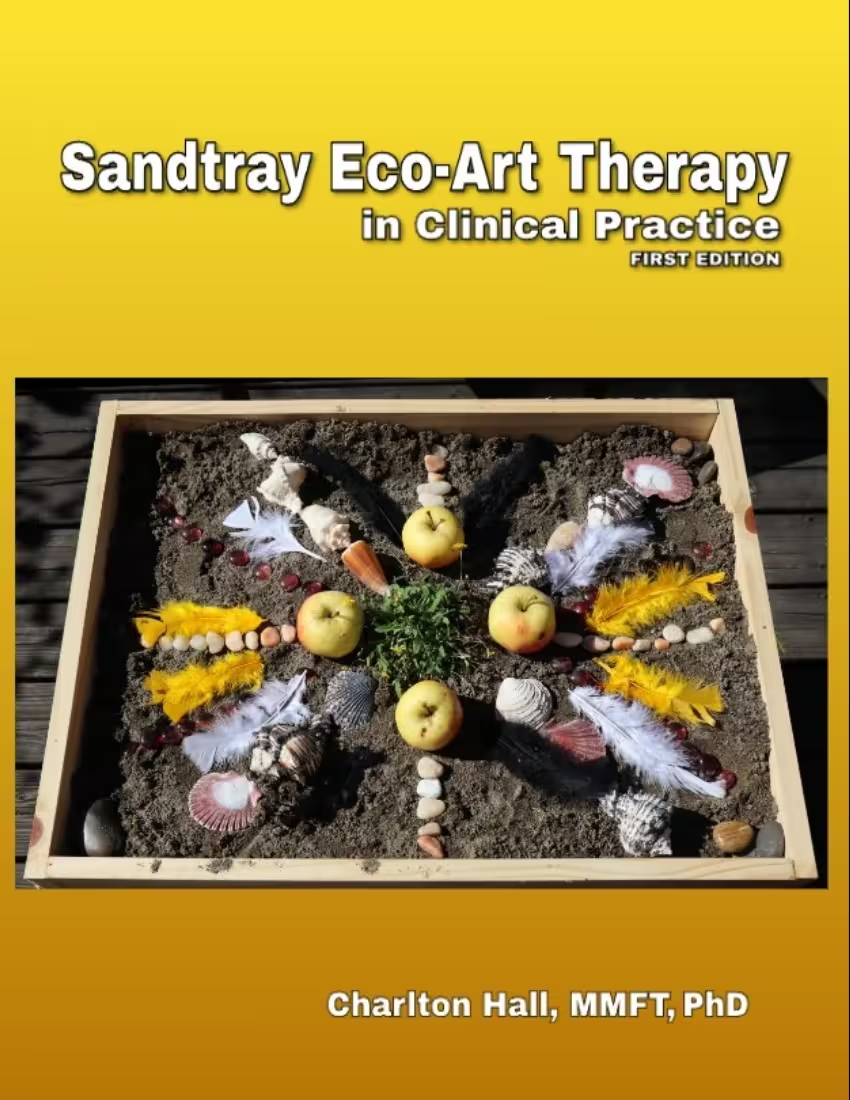ABOUT Sandtray Eco-Art Therapy in Clinical Practice
Sandtray Eco-Art Therapy in Clinical Practice offers an innovative approach to mental health treatment by blending the tactile engagement of sandtray therapy with the expressive potential of eco-art therapy. This comprehensive guide shows clinicians how to integrate these two powerful modalities into a cohesive therapeutic framework, promoting healing and transformation in clients of all ages.
Designed for therapists who wish to incorporate mindfulness, creativity, and nature-based practices into their work, this book provides step-by-step guidance on how to create meaningful therapeutic experiences. It covers a wide range of topics, including clinical case studies, session outlines, and practical tools for addressing common mental health issues such as trauma, anxiety, and low self-esteem.
Whether you are a seasoned practitioner or new to sandtray and eco-art therapy, Sandtray Eco-Art Therapy in Clinical Practice provides the foundational knowledge and practical skills necessary to create a safe, nurturing space for clients to explore and heal through creative expression. This text is essential reading for mental health professionals seeking to deepen their practice by tapping into the healing power of nature and creativity, as it offers a way to introduce the healing power of nature through ecotherapy for therapists who may not have ready access to an outdoor therapy space.
Sandtray Eco-Art Therapy in Clinical Practice offers a nature-based approach to therapy by combining the rich symbolism of sandtray therapy with the expressive, healing power of eco-art. This textbook introduces readers to a pioneering model that bridges two therapeutic methods, creating an innovative framework for clinicians working with individuals and groups facing various emotional, psychological, and behavioral challenges.
Rooted in mindfulness-based ecotherapy, this text emphasizes the role of nature in the healing process, helping clients reconnect with the environment and, in turn, with themselves. Sandtray Eco-Art Therapy (SEAT) blends the tactile, reflective process of sandtray therapy—where clients use miniatures to build symbolic worlds within a sandbox—with eco-art therapy, which invites clients to work with natural elements like leaves, stones, and wood in their artistic creations. This combination enhances therapeutic outcomes by fostering emotional expression, self-awareness, and grounding in the present moment.
The book offers clear, step-by-step instructions for integrating SEAT into your clinical practice, covering practical considerations for setting up a sandtray eco-art space, selecting materials, and structuring sessions to facilitate healing conversations. Through case studies, clinicians will gain insight into how SEAT can be applied to a variety of populations, including children, adolescents, and adults, helping clients navigate issues such as trauma, anxiety, grief, and relationship challenges.
Sandtray Eco-Art Therapy in Clinical Practice provides theoretical underpinnings that link SEAT to current trends in ecotherapy, expressive arts therapies, and mindfulness-based interventions. Readers will also find practical tips for tailoring SEAT to specific therapeutic goals, as well as methods for evaluating and documenting client progress.
Whether you are new to sandtray or eco-art therapy or are seeking to expand your existing toolkit with nature-based interventions, this textbook serves as a valuable resource. With a focus on creativity, environmental connection, and client-centered care, Sandtray Eco-Art Therapy in Clinical Practice offers a holistic path toward healing that integrates mind, body, and spirit. Perfect for therapists, counselors, social workers, and students, this text equips you with the knowledge and confidence to bring the benefits of nature and creativity into the clinical setting.
ABOUT THE AUTHOR OF Sandtray Eco-Art Therapy in Clinical Practice
Charlton Hall, MMFT, PhD is the author of multiple books on using mindfulness and ecospirituality to facilitate change within families and individuals, and he has presented research worldwide at conferences and seminars on this and other topics. In 2020 Dr. Hall retired from his position as a Marriage and Family Therapy Supervisor and Registered Play Therapy Supervisor to serve full-time as the Executive Director of the Mindful Ecotherapy Center, LLC. Learn more at www.mindfulecotherapy.org.

